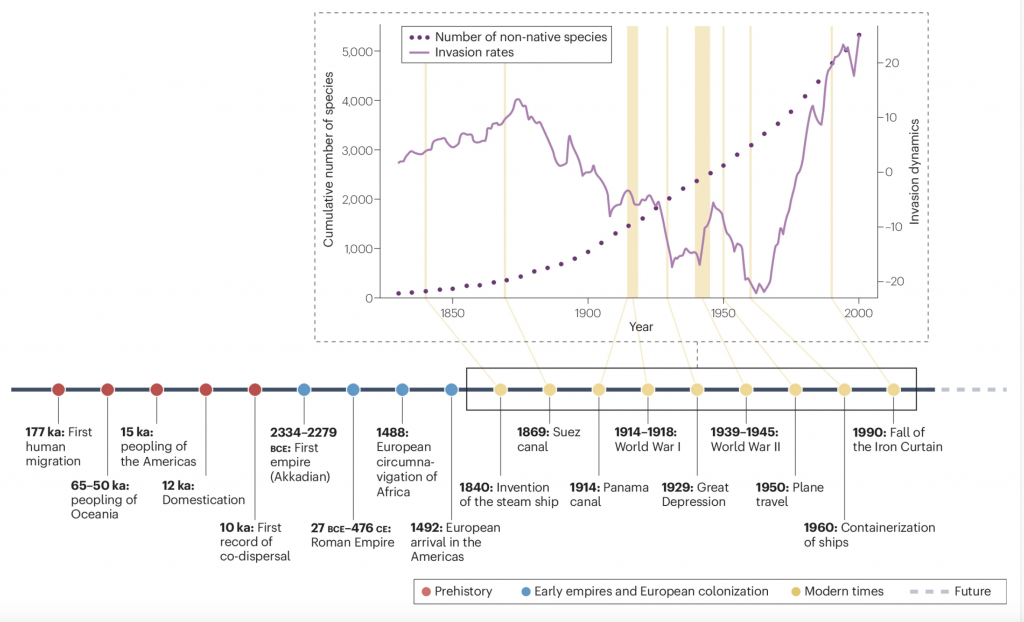We have published a review paper on ‘Temporal dynamics and global flows of insect invasions in an era of globalization’. This was a nice collaborative team effort with the participation of Aymeric, Tongyi, Rosaëlle and Sébastien in addition to Jeff (who is a professor from the University of of New Hampshire and did a sabbatical last year in our team) and Cleo (who lead the paper). Link to the paper.
Summary: Human-mediated transport has led to the establishment of more than 6,700 non-native insect species with wide-ranging effects on ecosystems, economies and human health. Understanding how different aspects of globalization affect the spread of non-native insects is crucial to reducing their effects. In this Review, we explore current and historical patterns, drivers and dynamics of global insect invasions facilitated by humans since prehistory. Multiple aspects of the history of globalization have influenced invasion dynamics, including the spread of agricultural practices in the Neolithic period, the advent of early empires and their trade routes, colonization, geopolitical events, wars and economic crises. Technological innovations such as steam ships, containerization and the internet have further accelerated global insect invasions. Spatial invasion patterns are characterized by frequent secondary spread via bridgehead populations, asymmetric intercontinental species flows originating disproportionally from Europe, and biotic homogenization of communities. Insect invasions are predicted to increase dramatically and their dynamics will shift, especially with the opening of trade routes and introduction pathways. Inspection at ports of entry and early detection systems are crucial to inform mitigation efforts. Future interdisciplinary collaborations will integrate knowledge from diverse and emerging data sources and technologies, advancing our understanding of insect invasion biology.
